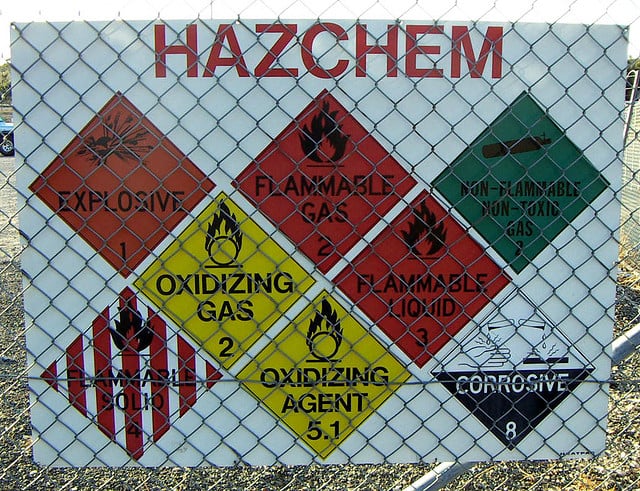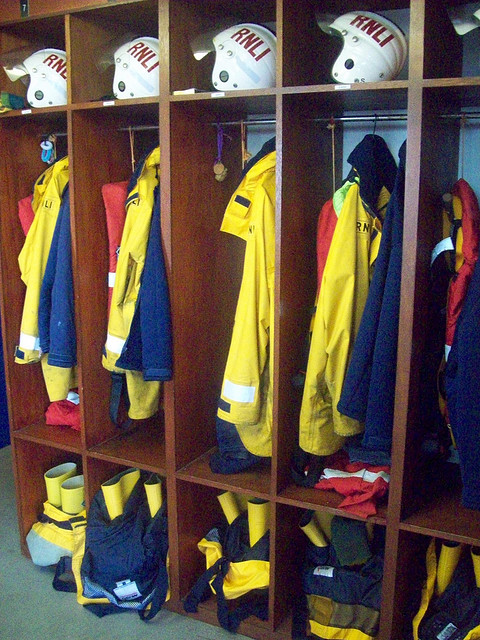Although the federal Securities Acts do not expressly outlaw stock trading that exploits preferential access to “insider” information, the Securities and Exchange Commission (SEC) and courts have applied general language in those Acts to cover these situations. A very recent decision by the federal Court of Appeals for the Second Circuit marks the latest such expansion, in a case holding the “tippee” of insider information liable for profits he helped third parties create by trading on that information (SEC v. Contorinis).
Audit, Compliance and Risk Blog
Federal Court To Expand Insider Trading “Tippee” Potential Liability
Posted by Jon Elliott on Mon, Mar 17, 2014
Tags: Corporate Governance, Business & Legal, SEC, SOX
People who are victims of a construction defect will seek as many defendants as possible to recover the costs of repairing and replacing the defects. Sometimes they will file one suit naming every possible defendant. Other times they will attempt to file separate suits against the various categories of defendants thinking it best to divide the defendants and then conquer them independently and thereby avoid excessive litigation costs.
Tags: Corporate Governance, Business & Legal, Health & Safety, Insurance, Insurance Claims
Supreme Court: Whistleblowing Employees of Contractors to Public Companies Are Protected
Posted by Jon Elliott on Mon, Mar 10, 2014
Prosecutors rely on informants from time to time to identify wrongdoing and “make their cases.” But corporate fraud whistleblowers can face bleak futures: at best they may be ostracized from future promotions, at worst they may be terminated with no favorable recommendation. Section 806 of the Sarbanes-Oxley Act of 2002 (SOA) adds important protections for whistleblowers
Tags: Corporate Governance, Business & Legal, SEC, SOX
EPA Proposes To Revise The Agricultural Worker Protection Standard
Posted by Jon Elliott on Wed, Mar 05, 2014
The US Environmental Protection Agency (EPA) administers a Worker Protection Standard (WPS) designed to protect workers exposed to agricultural pesticides. WPS is patterned after the Occupational Safety and Health Administration (OSHA's) Hazard Communication Standard (HCS) for workers in most industrial and commercial settings. EPA adopted the WPS in 1992, and just proposed its first revisions on February 20, 2014. Some of these changes incorporate revisions to HCS adopted by OSHA in 2012 (see my earlier blog), while others catch up on two decades of industrial hygiene and worker safety practices. Comments will be due 90 days after the proposal is published, with final approval to follow sometime later.
Tags: Business & Legal, Employer Best Practices, Health & Safety, OSHA, Employee Rights, Environmental risks, Environmental, EPA, Hazcom
EPA Programs Showing Solid Reduction in Greenhouse Gas Emissions
Posted by Viola Funk on Mon, Mar 03, 2014
In December we saw in this space that a US Environmental Protection Agency inventory showed solid reductions in greenhouse gas (GHG) emissions in recent years. Now EPA has issued its annual Climate Protection Partnerships report, which contains more good news on the emissions front.
Tags: Audit Standards, Health & Safety, EPA, Greenhouse Gas, ghg, Oil & Gas, climate change
Environmental Compliance: EPA Adopts Hazardous Waste e-Manifests
Posted by Jon Elliott on Wed, Feb 26, 2014
The Resource Conservation and Recovery Act (RCRA) requires you to document all shipments of regulated hazardous wastes. Domestic transportation is documented using Uniform Hazardous Waste Manifests, which are shipping documents prescribed by the US Environmental Protection Agency (EPA) which revises Manifest forms occasionally—including major changes back in 2006. Now EPA has acted again, to create an electronic manifest (“e-Manifest”) option that will take force once EPA finishes the web-page data system required to receive and manage electronic filings.
Tags: Health & Safety, Environmental risks, Environmental, EPA, Hazcom, RCRA
OSHA Seeks Public Comment to Improve Chemical Safety
Posted by STP Editorial Team on Mon, Feb 24, 2014
In April 2013, 15 people were killed in an ammonium nitrate explosion at a facility in Texas. In response OSHA has announced a request for information (RFI), seeking public comment on potential revisions to its Process Safety Management standard and related standards, as well as other policy options to prevent major chemical incidents. To read the news release and learn more information on how to view the RFI and submit comments, click here.
Delaware Confirms Shareholders' Agreements Trump Fiduciary Duties
Posted by Jon Elliott on Wed, Feb 19, 2014
Many investors in small companies are generally aware that company directors owe shareholders “fiduciary duties,” which they expect will protect their rights. (I discuss them in my ebook, and in my discussion of a 2013 decision). That’s true as far as it goes, but investors need to remember that these duties can be clarified by state statutes that expand or reduce their traditional meaning, and can be over-ridden by a company’s shareholders agreement. The influential Delaware Supreme Court issued a decision late last month, confirming that a plaintiff had bargained away her rights. Here’s a summary of the case:
When you think of dangerous industries to work in, which ones come to mind? Construction, mining, longshoring, maybe even letter carrying, are obvious, but did healthcare make the list?
Tags: Employer Best Practices, Health & Safety, OSHA, Employee Rights, Training, EHS, Workplace violence
Employment Law: Supreme Court Affirms No Pay To Change Clothes
Posted by Jon Elliott on Thu, Feb 13, 2014
The Fair Labor Standards Act (FLSA) was first enacted in 1938, to ensure “fair pay” for American workers. Sixty-five years later, it is invoked most often when minimum wage and overtime premium pay are under discussion. But it also includes a number of important secondary provisions—including one requiring employers and employees to determine which time at the workplace is considered “work” that must be compensated, and which is not.
Tags: Corporate Governance, Business & Legal, Employer Best Practices, Employee Rights

.jpg)

.jpg)






